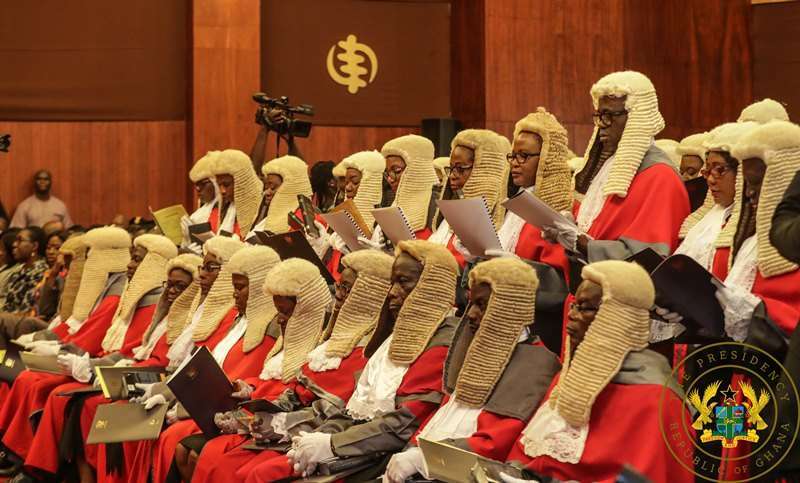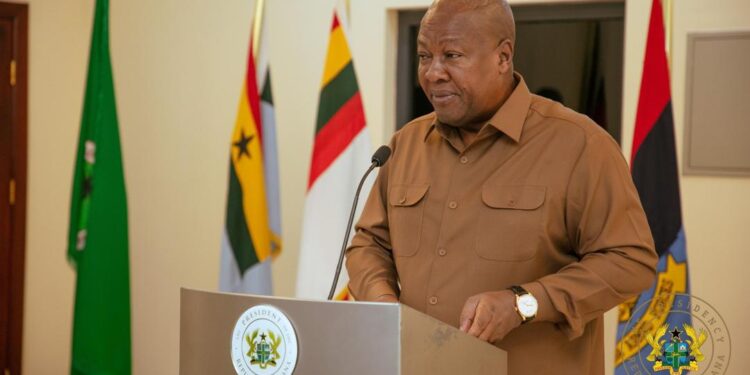The Member of Parliament for Buem, Hon. Kofi Adams backed the speaker’s decision having looked into the workings of Ghana’s Constitution, particularly as it applies to parliamentary procedure and democratic governance.
He highlighted the clear protection of a multi-party democracy under Ghana’s 1992 Constitution and stressed the importance of the parliamentary process in interpreting and implementing legal standards.
Through his statements, Hon. Adams illustrated the significance of institutional responsibility and constitutional adherence in Ghanaian politics.
Hon. Adams emphasized that Ghana’s Constitution strongly safeguards a multi-party democracy, beginning with Chapter 1, Article 3, which states, “
”Parliament shall have no power to enact a law establishing a one-party state.”
The Constitution jealously protects multi-party democratic dispensation. [It]doesn’t want a situation where you go through an election, and one party wins so many seats that it decides to make a law to abolish other parties or force them to create a one-party situation.”
Hon. Kofi Adams Member of Parliament for Buem
Political Parties and Public Accountability
A central part of Hon. Adams’ message was that political parties are not private entities free from public oversight. Instead, they operate under the Constitution, which mandates transparency and accountability.
Referring to Article 557, he stated that the first requirement for a party’s registration with the Electoral Commission is its constitution, making it a publicly relevant document.
“A party’s constitution is not their private [document] that they think they can handle to do with it anyway and anyhow, the [Republic’s] Constitution makes provision for you to become a political party, the first document required of you is your constitution.”
Hon. Kofi Adams Member of Parliament for Buem
Interpretation of Laws Beyond the Supreme Court
Hon. Adams addressed the common misconception that only the Supreme Court interprets laws, noting that interpretation happens at various institutional levels.
“On a daily basis, nobody should fool himself that only the Supreme Court interprets our laws.
Every day, when you have a mandate, the executive is interpreting laws by its programs that they do, [and]parliament is interpreting laws by its programs that they do, so through its, it is only when there is an issue of question at a lower court of interpretation/understanding [that] it is referred to the Supreme Court.”
Hon. Kofi Adams Member of Parliament for Buem
The Precedence of Parliamentary Decisions
Hon. Adams highlighted the precedence that parliamentary actions hold within Ghana’s legal framework.
He illustrated this by referencing recent events involving minority leader Haruna Iddrisu, who went to the Supreme Court seeking an injunction against a parliamentary decision before it was fully executed.
“Parliament feels [that] in its workings, no institution should stop [it] from performing its functions. [In fact, it is in the Constitution that until parliament has done an act, you cannot question it].”
Hon. Kofi Adams Member of Parliament for Buem
He then referred to the example of a narcotics law case where, after parliament passed a bill, a legal challenge emerged and the Supreme Court intervened.
The Role of Parliament in Implementing Decisions
Hon. Adams explained the legal doctrine surrounding stays of execution, noting that while courts may order a stay on implementing a parliamentary decision, they cannot retroactively nullify actions already executed by parliament.
According to Hon. Adams, this principle underlined parliament’s autonomy in deciding when and how to revisit its own decisions.
However, the principle of stay in law actually works that way: you have done something, but you are now going to implement it. Then the court will say, don’t implement until further notice.
”Parliament’s decision, and not speaker’s decision… [stands] until parliament itself decides otherwise through a [due] processes.”
Hon. Kofi Adams Member of Parliament for Buem
Implications of Court Orders on Parliamentary Functions

Meanwhile, If the Supreme Court makes orders and you do not comply, you are committing a high crime. High crime can attract up to 10 years in prison, and you are also prohibited from holding public office for another 10 years.
Hon. Adams believes in the supreme authority of parliament to make and uphold decisions while underscoring that the constitutional checks remain vital in regulating power.
The Numbers Game in Parliament
Hon. Adams discussed the numerical challenges faced by parliamentary sessions, emphasizing that Ghana’s parliament often struggles to maintain the required quorum for conducting official business. He emphasized; “We have the numbers to do business because that comes under Article 102. You need about 92 to 93 members”.
Finally, Hon. Adams argued that for parliament to uphold its mandate effectively, external interference should be minimized, with the Supreme Court stepping in only when constitutional limits are crossed.
Hon. Adams emphasized the role of parliament as a decision-making body, stating that its judgments should be respected unless constitutionally challenged and invalidated post-factum.
Hon. Kofi Adams provided a comprehensive view of the Constitution’s role in balancing democratic representation, party accountability, and parliamentary independence, underscoring the fundamental principles that uphold Ghana’s democracy.
READ ALSO; Empress Gifty Celebrates 42nd Birthday In Gratitude




















